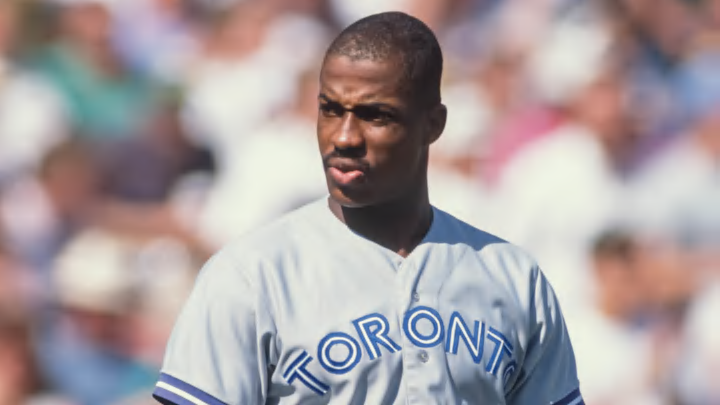Every year there are some brutal All-Star snubs, unfortunately it's just a way of life in Major League Baseball.
Over the course of the Toronto Blue Jays' lifetime, there have been some great players who somehow some way never made the Midsummer Classic during their tenure in Toronto.
Let's break down three of the best Blue Jays players who were never voted in to the All-Star Game.
Honorable mentions: Reed Johnson, Mark Eichhorn, Scott Downs, Colby Rasmus, Ken Giles
Fred McGriff
I mean, of course.
McGriff, recently inducted into the Hall of Fame (finally), spent the first five years of his storied big league career as a member of the Jays. He debuted in 1986 as a 22-year-old but only made it into three contests that year.
Things took off for him and he seemed to be improving gradually in each year until he exploded in 1989 with a 36 homer, 92 RBI, 165 OPS+ showing. He finished sixth in the AL MVP race that year and drew a ridiculous 119 walks along the way.
By the time he had established himself as a real threat around the league, he had 125 home runs under his belt and a 153 OPS+ throughout his first five years as a Jay. Yet, somehow, he never made a single All-Star Game with the club.
We all know what he went on to do with the Padres, Braves, Rays, Cubs and Dodgers over the course of the next 14 years. The Crime Dog seemingly did everything right throughout his career and did end up making five ASG appearances in his post-Toronto days, but it is truly shocking that he never was able to do so as a member of the Jays.
Shannon Stewart
Stewart broke into the league as a 21-year-old in 1995 as a member of the Blue Jays outfield. Throughout his ten-year career in Toronto, he was a lock to reach double digit home run totals, steal a ton of bases, hit over .300 and barely ever strike out.
From 1998 to 2003, Stewart never had an OPS+ below 100, meaning he was consistently above league-average with the bat in every single full season he had in Toronto.
His best season came in 2000 when he hit 21 home runs, drove in 69, stole 20 bases and had an OPS+ of 118. But it wasn't until 2001, a year where his power was down but all other stats were on par with the year before, that he earned the first MVP votes of his career.
Stewart is unique on this list from the other two candidates because he did not go on to make an ASG later in his career with another team. After his decade-long tenure in Toronto, he spent the next five years in Minnesota and Oakland where his production began to dip and never reached his Blue Jays standards.
Doyle Alexander
Unlike McGriff and Stewart, Alexander did not make his first appearance as a member of the Blue Jays until he was 32-years-old in 1983. By that point, he had established himself as a reliable starting pitcher who had well over 1,800 innings under his belt along with a 108-101 record and a 3.72 ERA in 336 appearances.
After being released by the Yankees in 1983, the Jays signed Alexander and he improved across the board for his new team.
In each of the following two seasons after that, he won 17 games and was one of the more quietly reliable arms on the staff in both 1984 and 1985.
In 1984, Alexander had a 17-6 record with a 3.13 ERA, 11 complete games and a career-high 132 ERA+ in 261 innings. He followed that up with a 17-10 showing in 1985 and pitched well enough to finish sixth in the AL Cy Young Award voting.
Alexander, much like both McGriff and Stewart, shockingly didn't make an All-Star Game appearance in either season despite earning AL MVP votes in each year.
In parts of four seasons as a Jay, Alexander posted a combined 13.5 bWAR for the club. He ended up making an ASG in 1988 at 37-years-old for the Detroit Tigers. He finished that year with a 4.32 ERA and 88 ERA+ so it is such a shame he couldn't have made the Midsummer Classic during his prime.
